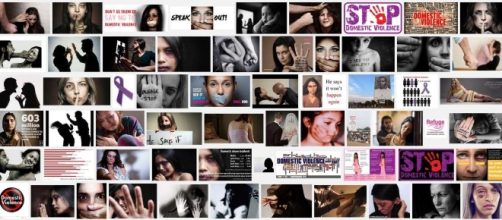Video campaigns
Talking about male victims of domestic abuse can be difficult in today's society. I saw this first hand when I recently watched an Australian PSA on how domestic abuse can stem from childhood, and how parental attitudes sometimes explain away and even justify that abuse.
This campaign, like most of the others I have seen, had a female victim and a male aggressor. This PSA was actually very importantbecause it showed that when a little boy teases and/or bullies a girl, it is still often explained away as "he just has a crush on you, he's mean because he likes you." And this can have later ramificationsbecause it exploits the idea that boys can't express their feelings in a nice way, and if a boy is mean to you it's just because he can't express how much he likes you.
The comments section of this Youtube video were pretty standard. About half the comments are from people saying "yes, women are abused and it's terrible. But men also experience abuse, so why is no one acknowledging that?" with the other comments arguing that "no one is saying men aren't abused, but this campaign is about women, so don't try to make it about men.". This is what you see a lot, and it often turns into quite nasty arguments.
The facts
The fact is that both sides are right. 1/3 victims of domestic abuse are male, which means that 2/3 are still women. Whilst men do experience domestic abuse, all the stats suggest that women still experience it more.
The problem is that 1: Men are far less likely to report domestic abuse than women, so we still don't know how many have experienced some form of domestic abuse 2: there isstill less awareness and understanding about male victims and 3: there are far
2: There isstill less awareness and understanding about male victims
3: There are far less resources availablefor male victims than their female counterparts.
According to Man Kind, a website dedicated to supporting male victims and spreading awareness, there are 18 organisations in the U.K that offer refuge/safe houses for men, whereas there are almost 400 facilities dedicated to women and children. Man Kind also reports that over 80% of men who have called their help line have never reported the abuse to anyone else.
Male victims are invisible
The fact is that although violence towards men appears to be rising dramatically, most common discourse still refers exclusively to male perpetrators and female victims. Whilst this is still important, as women are still more likely to be victims, there are examples of female abuse being portrayed and deemed unacceptable all over TV, books, films and the news. We know about it, and we know it's not okay.
Domestic abuse where the male is the victim, or indeed where the victim is in a homosexual relationship, is far less talked about. It is also far less likely to appear in popular media. When it does it is typically seen as less serious, sometimes even portrayed as a joke. This means that when a man is abused, it may be far less easy for them to understand what is happening to them, and it is harder for them to be taken seriously by someone else.
We need to give all victims a voice
Men could benefit considerably from a PSA or video campaign that featured a male victim and offers support and advice. They could also benefit from more information on emotional abuse, which is something else that is lacking in campaign videos.
I feel that a lot of the tension you see in these comment sections doesn't stem from the fact that any particular campaign was focusing on women, but because they all seem to focus on women. Campaigning on behalf of men isn't denying the experience of women. It's not saying women haven't been victims at the hands of men. It's just showing that women aren't the only victims of domestic abuseand that both men and women (and those who identify as neither or both) deserve help and respect.

